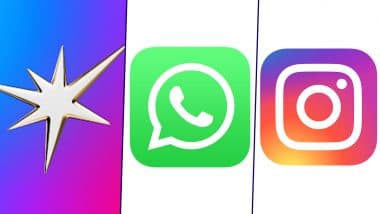New Delhi, Nov 17: If someone has sent you an MP4 file on WhatsApp, guard against downloading it as hackers may use a critical vulnerability in the Facebook-owned app to execute snooping attack on both Android and iOS devices. The specially crafted MP4 file triggers the remote code execution (RCE) and denial of service (DoS) cyber attack. Facebook has issued an advisory, saying "A stack-based buffer overflow could be triggered in WhatsApp by sending a specially crafted MP4 file to a WhatsApp user. WhatsApp Dark Mode Coming To Apple iPhone Soon; iOS Devices Might Get Feature Sooner Than Android Phones.
"The vulnerability is classified as 'Critical' severity that affected an unknown code block of the component MP4 File Handler in WhatsApp," reported gbhackers.com on Saturday.
"The issue was present in parsing the elementary stream metadata of an MP4 file and could result in a DoS or RCE."
The news comes on the heels an Israeli software Pegasus by cyber intelligence company NSO Group that exploited its video calling system to snoop on 1,400 selected users globally and in India, including human rights activists and journalists.
The issue snowballed into a political one and the Indian government denied either purchasing or planning to purchase the infamous software in question.
"We agree with the government of India's strong statement about the need to safeguard the privacy of all Indian citizens. That is why we've taken this strong action to hold cyber attackers accountable and why WhatsApp is so committed to the protection of all user messages through the product we provide," a WhatsApp spokesperson had said in a statement.
The new vulnerability is found in Android versions prior to 2.19.274; iOS versions prior to 2.19.100; Enterprise Client versions prior to 2.25.3; Business for Android versions prior to 2.19.104; Business for iOS versions prior to 2.19.100; and Windows Phone versions before and including 2.18.368.
Hackers can use the WhatsApp vulnerability to deploy the malware on the user's device to steal sensitive files and also used to surveillance purpose.
"The RCE vulnerability allows hackers to perform the attack remotely without any sort of authentication," claimed the report. The critical WhatsApp vulnerability can be tracked as CVE-2019-11931.
(The above story first appeared on LatestLY on Nov 17, 2019 03:17 PM IST. For more news and updates on politics, world, sports, entertainment and lifestyle, log on to our website latestly.com).













 Quickly
Quickly





















